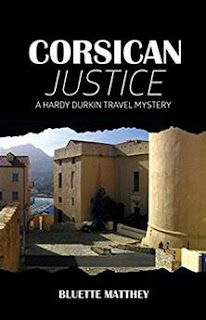Memento Mori brings us a crime story
set in ancient Roman Britain, this time in the spa town of Aquae
Sulis, today's Bath, England. The town today boasts many Roman ruins
including the mineral baths, and those baths play a central role in
this tale. As always, the author looks to history for inspiration,
and provides amateur historians lots of information and era flavor to
enjoy.
Ruso is the main character of the
series set in AD123 (in this book). He's a Roman-Gaul (modern day France) who
served as a doctor (medicus) in the Roman army. In the course of the
series, Ruso followsd the example of many of his fellow service
members, and marries a local woman. Tilla, Ruso's British wife,
contrast entertainingly with her husband, with the two forming a
cohesive whole that is very appealing.
One thing I've admired about the series
is how the life of the Roman soldiers, as seen through Ruso and his
comrades, always links the story and characters firmly to modern
times. That is true in this book too. Ruso in this book has retired
from service and moved in with his wife's relations in Northern
England. But being Ruso and Tilla, a crime surfaces very quickly to
draw them south to the spa town to help out an old friend. There are
several old friends in the book, which will please followers of the
series.
Much of the humor in the series comes
from the contrast between British and Roman customs and ways of
thinking. Sections alternate between the third-person limited point
of view of Ruso and Tilla, and a few other characters now and then.
Those perspectives ring true, as do the interactions between husband
and wife. All the characters feel very human, which has been a
strength of the series from the beginning.
I felt that the narrative flows
logically and is easy to follow, and it is entertaining all along the
way. I tend to get restless reading the middle section of crime and
mystery novels, at the point where the author mixes it all up and
adds in red herrings and odd strands of side stories, but that didn't
happen with this book (nor with the others in the series). I enjoyed
it all!
These are all the books in the Ruso Series to date:
- Medicus (reviewed on this site)
- Terra Incognita
- Persona Non Grata
- Caveat Emptor
- Semper Fidelis
- Tabula Rasa (reviewed on this site)
- Vita Brevis (reviewed on this site)
- Memento Mori (reviewed on this site)
The Kindle version of the book has this alternate cover.
From the book's description:
The eighth gripping novel in the bestselling Medicus series, in which Ruso and Tilla investigate the death of the wife of Ruso's friend in the sacred hot spring of Aquae Sulis.A scandal is threatening to engulf the popular spa town of Aquae Sulis (modern-day Bath). The wife of Ruso's best friend, Valens, has been found dead in the sacred hot spring, stabbed through the heart. Fearing the wrath of the goddess and the ruin of the tourist trade, the temple officials are keen to cover up what's happened. But the dead woman's father is demanding justice, and he's accusing Valens of murder.If Valens turns up to face trial, he will risk execution. If he doesn't, he'll lose his children.
Ruso and Tilla do their best to help but it's difficult to get anyone--even Valens himself--to reveal what really happened. Could Ruso's friend really be guilty as charged?
Here is a direct link to the book at
Amazon.com:

















































